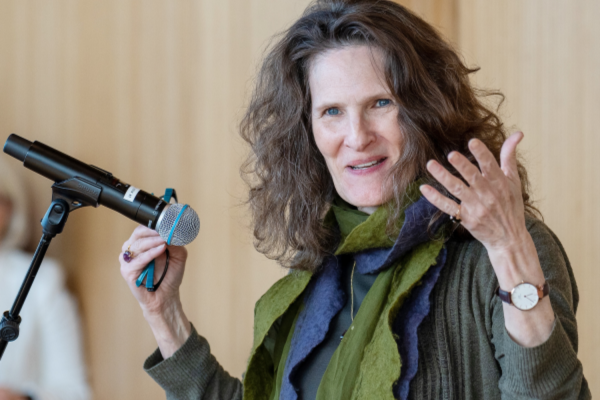
The Metaphor as Reception, Reception as Metaphor Working Group will host Michèle Lowrie, Andrew W. Mellon Distinguished Service Professor in Classics at the University of Chicago, for a public lecture titled "Translatio imperii: A Powerful Metaphor for Reception."
Translatio is one Latin word for metaphor, so it is no surprise that the common medieval phrase for the succession of empires has a figural dimension. But what is the figure — simile, metaphor, or prefiguration — within which Rome plays a central role, either as target or source of reception? Herodotus, the book of Daniel, Sallust's Bellum Catilinae, Vergil's Aeneid, Jerome's commentary on Daniel, Otto of Freising's universal history, and Berlioz's Les Troyens list, juxtapose, and create figural relations between empires in sometimes more, sometimes less fully conceptualized ways. The difference between classical rhetoric and Christian hermeneutics is a key difference, but French Romanticism avails itself of both traditions.
Professor Lowrie’s research focuses on how Latin literature thinks about politics, particularly the ways political thought emerges from a text’s formal elements and figurative expression short of abstract conceptualization. She has published Horace’s Narrative Odes and Writing, Performance, and Authority in Augustan Rome, both from Oxford University Press. Edited volumes include Oxford Readings in Classical Studies: Horace’s Odes and Epodes and, together with Susanne Lüdemann, Exemplarity and Singularity: Thinking through Particulars in Philosophy, Literature, and Law, with Routledge. Current research focuses on civil war and security, both Roman concepts with long histories. A frequent visitor to the Center for Advanced Studies at the Ludwig-Maximilians-University in Munich, she has also held residential fellowships at the Center for Advanced Study in Princeton, the Warburg-Haus in Hamburg, the Research Center “Cultural Theory and Theory of the Political Imaginary” in Konstanz, the American Academy in Berlin, and the Institute of Advanced Study in Durham, England. She has received a Burkhardt Fellowship from the American Council of Learned Societies, as well as fellowships from the Loeb Classical Library Foundation and the National Endowment for the Humanities. Professor Lowrie gave the Gray Lectures at Cambridge in 2018. Her BA is from Yale and PhD from Harvard.
This event is free and open to the public. Hosted by the The Metaphor as Reception, Reception as Metaphor Working Group and the Humanities Institute.
The Humanities Institute and its related centers host a wide range of events, from intense discussions of works in progress to cutting-edge presentations from world-known scholars, artists, activists and everything in between.
We value in-person engagement at our events as we strive to amplify the energy in the room. To submit an accommodation request, please send your request to Cody Childs, childs.97@osu.edu
